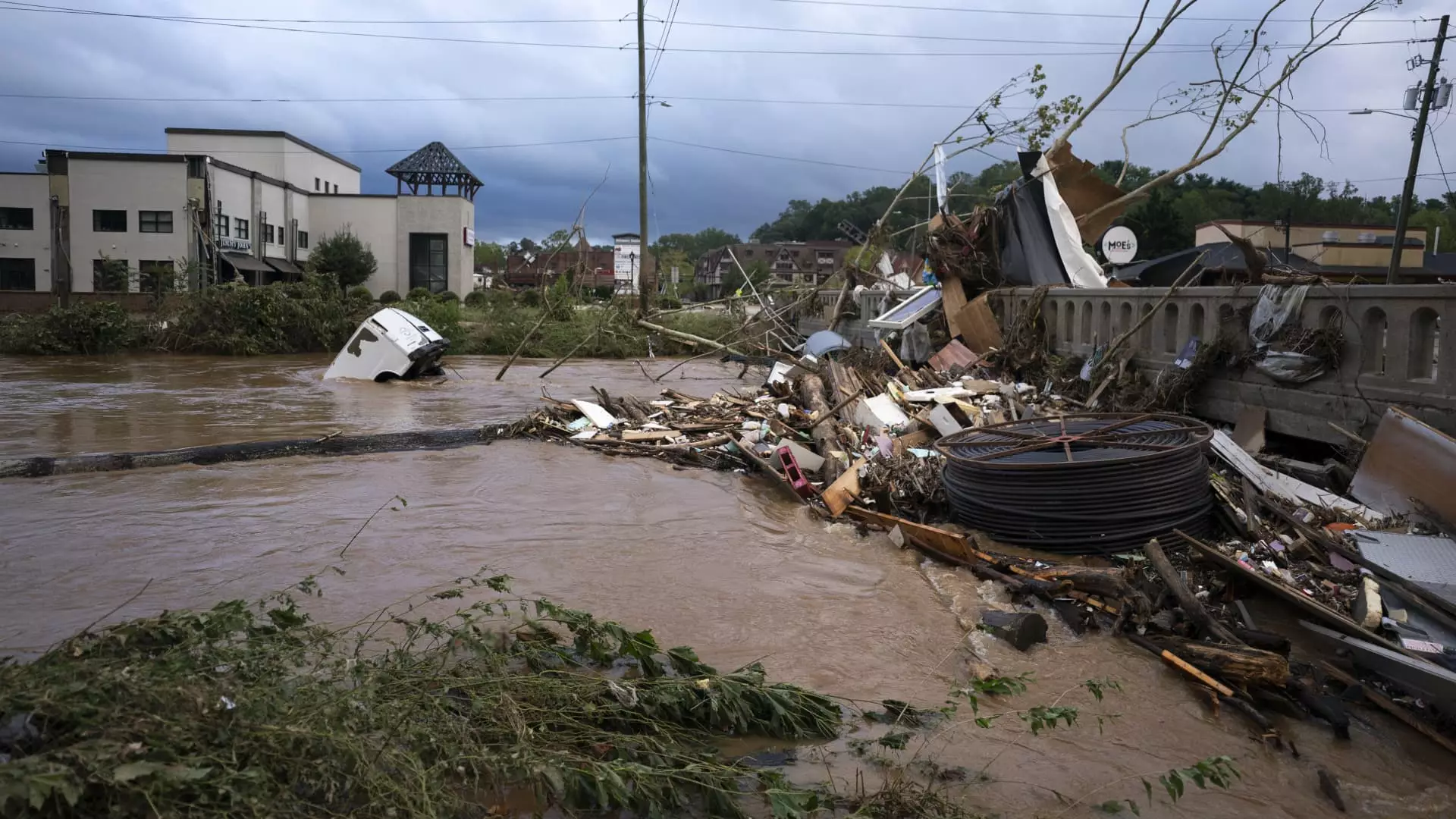The aftermath of Hurricane Helene has left many states grappling with not just the physical devastation of the storm but also a surge in malicious activities aimed at exploiting vulnerable residents. Individuals and businesses have been warned to be vigilant against the pervasive risk of scams, most notably price gouging. Price gouging occurs when sellers exploit an emergency situation to raise prices excessively on essential goods and services. Amid this crisis, North Carolina’s Attorney General, Josh Stein, recently reported a troubling increase in complaints alleging price gouging, particularly concerning gasoline, grocery items, and hotel accommodations. Remarkably, more than 100 complaints were registered, despite the enforcement of robust anti-price gouging laws activated by the state of emergency.
Stein’s observations highlight a grim reality: although the majority of businesses strive to support their communities during hard times, a minority may unscrupulously capitalize on the desperation of others. Prices rising dramatically—like bottled water skyrocketing from $5 to $10—are clear indicators of price gouging. As noted by Teresa Murray, director at U.S. Public Interest Research Group, the essence of price gouging lies in whether the price hikes appear grossly disproportionate to normal fluctuations. Unfortunately, the unforeseen nature of disasters often invites unethical behavior.
In the context of Hurricane Helene, state attorney generals across several impacted states—including Florida, Georgia, and South Carolina—echo Stein’s warnings. These states, alongside 37 others, have legislative measures aimed at curbing price gouging during emergencies. However, the legal landscape varies significantly, as not all states employ such protections, leaving residents in some areas particularly vulnerable. Senator Kamala Harris has advocated for a nationwide prohibition on price gouging amid her presidential campaign, recognizing its pressing relevance in times of crisis.
Despite these legal protections, consumers are advised on how to respond if they suspect they are victims of price gouging. The initial approach should involve directly addressing the business in question. Murray suggests maintaining a courteous tone while expressing concerns over inflated prices. Should the business remain unyielding, filing a complaint with the state’s attorney general is the next appropriate step. Documentation, such as taking photos of inflated price tags, could be pivotal in these reports.
While price gouging is a considerable concern, it is not the only type of scam that emerges following a disaster. After Hurricane Helene, officials have warned of a range of fraudulent schemes aimed at tricking residents out of money or personal information. From individuals impersonating federal representatives to dubious contractors offering home repairs, the potential for exploitation in times of need is substantial. Georgia Attorney General Chris Carr has specifically cautioned against providing personal data to unsolicited callers and reminded residents that services from genuine organizations like FEMA and the Small Business Association are always free.
Moreover, homeowners are advised to exercise caution when approached by door-to-door repairmen. Requests for upfront payments or offers that seem too good to be true should raise red flags. To safeguard against such scams, individuals are encouraged to consult their insurance companies prior to committing to any repairs and to thoroughly vet contractors by checking references and consulting the Better Business Bureau.
The automotive market often sees a spike in fraudulent activity following disasters, particularly involving sales of cars that have been damaged by flooding. Individuals looking to buy used vehicles after Hurricane Helene must be particularly diligent. Checking a vehicle’s history through resources such as the National Insurance Crime Bureau’s VINCheck or Carfax’s flood check can protect prospective buyers from making costly errors associated with submerged vehicles.
As communities begin the slow recovery process, many individuals feel compelled to contribute financially to relief efforts. However, it is crucial to ensure that donations are directed toward legitimate organizations. Scammers often exploit the goodwill of donors by creating fake charities. Potential donors should utilize platforms such as Give.org or CharityNavigator.org to verify the credibility of organizations before contributing their hard-earned money.
The devastation wrought by Hurricane Helene serves as a sober reminder not just of the challenges posed by natural disasters, but also of the ethical dilemmas that can accompany them. As communities rally to recover and rebuild, staying informed and vigilant against scams—ranging from price gouging to charity fraud—remains fundamental. Residents must be proactive in safeguarding themselves as they navigate through recovery, armed with the awareness of their rights and the channels available for reporting and seeking assistance.

